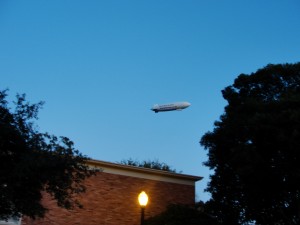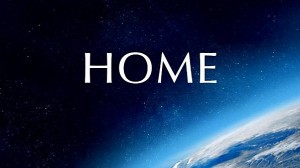There are just so many entertaining spottings! I can never get enough…
More to come, for sure. I’m running out of post titles, I’ve had so many noteworthy encounters on the road.
You know, I never understood people who honk. Other than the occasional toot to let someone know you’re there when they look like they’re about to merge into you, I don’t see much of a reason to use that feature. Yet, I see people who hold down their horn like madmen just because they’re driven crazy with road rage. I see people who honk at you to get out of their way when sometimes it’s impossible and other times you weren’t going in their way anyway. It seems that they need an outlet for their anger, which is all too easily incited.
Perhaps horns should be designed to be loud enough to make the same impact they do now, but somehow sound friendlier. The blaring ones these days are annoying enough to make anyone hearing it grumpy. Why do they need to sound so upset? Sure they’re meant to be a warning, but warnings can be a loud enough volume without having to sound like someone’s yelling or screaming at you in a bad way. I wish drivers weren’t so “trigger-happy” when using their horns. It puts everyone in a foul mood and makes for worse driving. Certainly not setting the right tone there.
Maybe it’s just because of the drivers in LA. You’ve gotta be pretty aggressive to get around in this city, so perhaps that has put everyone in a poor mood, stressing them out. Whatever the case, the driving experience would be a whole lot better if drivers refrained from using their horns so much. That’s like walking around with a megaphone, blaring it at someone whenever they do something that ticks you off the slightest. I feel that horns should be used sparingly, if at all, and better driving would be a better way of preventing the need to use it. Save it for the time you actually need it for your safety, and not for whenever you feel like it.
When I was a kid, I used to call the days when rain would come and go very quickly “zebra days.” Much like the stripes of a zebra, the dark would quickly be followed by light and then dark again. This spotty weather fascinated me, so I just had to take some pictures when it happened again. We’ve been getting a lot of little storms coming through, apparently due to El Nino, as I’ve been told.
A look at the other performances at Kollaboration last year. See here for part of the winner’s performance.
paul dateh’s electric violin from Mary Qin on Vimeo.
david choi’s love song from Mary Qin on Vimeo.
It’s almost time for Kollaboration again, so here’s a look back on the winner last year:
low battery! from Mary Qin on Vimeo.
See more performances here.
UCLA has a lovely campus and Los Angeles has quite a skyline.

I spotted a blimp and immediately went chasing after it for photos. Turns out the first one was to be the only one. Those things are deceivingly fast!
Ok, rather unrelated, but both have to do with the word “wave.” First, a wave that went around the Rose Bowl. Fifteen (maybe sixteen) times!
Then, wave boarding afterwards! The wave board I got in China had light-up wheels, which was just plain fun and awesome to play with in the dark.
A drizzly night earlier this month, my friend and I went into LUSH after a wooonderful dinner at Buddha’s Belly. A lovely surprise awaited as I was invited to get a free facial!
 A few nights ago, I went to a screening of HOME, a film by Yann Arthus-Bertrand. It’s a film that brings to light many environmental issues surrounding the planet. It has such spectacular graphics that sometimes it doesn’t feel real. Plus, you’re seeing things from a bird’s eye view (or, more accurately, a hot air balloon’s eye view), which is rather unique in itself. Such images are striking possibly purely because of the difference in perspective you get. Whatever the case, the beauty of the film is undeniable and the message it spreads is powerful. In fact, you should go see it yourself – it’s free to the world!
A few nights ago, I went to a screening of HOME, a film by Yann Arthus-Bertrand. It’s a film that brings to light many environmental issues surrounding the planet. It has such spectacular graphics that sometimes it doesn’t feel real. Plus, you’re seeing things from a bird’s eye view (or, more accurately, a hot air balloon’s eye view), which is rather unique in itself. Such images are striking possibly purely because of the difference in perspective you get. Whatever the case, the beauty of the film is undeniable and the message it spreads is powerful. In fact, you should go see it yourself – it’s free to the world!
The bit that struck me the most was when it said that Dubai has just about as much sunlight as you can ever hope for, yet not a single solar panel. It’s not really something that I had thought of before, but it’s ironic, isn’t it? The great thing about films like these is that they not only inform you and teach you, they make you think. They don’t always have the answers for you, but they bring about certain issues that are important to consider. Just by starting conversations and getting people aware of things they should consider, they’re making a vital contribution towards the betterment of this world. In addition to learning that tidbit, the film also showed me an area (I believe it was in Germany) that has solar panels covering the rooftops. If a place like that with less sunlight can take advantage of the energy provided by the sun, why aren’t the countries closer to the equator and with far stronger sunshine following suit?
It’s truly a fantastic film that should be shared with the world. By making it free, what better way to spread it far and wide? That is his goal, and he has been traveling all over the planet to promote the film, answer questions at screenings, and generate the sort of momentum we must gather to turn the environmental movement into something that will truly change the world. We are changing for the better, but not fast enough. It’s not too late to right some of the many wrongs that have happened, but all too soon it could be. Hence, it’s important that we take action now, in a way that we haven’t been. Copenhagen was disappointing in the lack of unity between countries and that NEEDS to change. We’re the first and only species that has ever done so much harm to the very environment we live in. Are we set on self-destruction?!
I hope not. Which is why I appreciate efforts like these to get people to take charge of the future and make this world better, not worse. And for those who laugh and make fun of the environmentalists out there… well, you can be the ones to blame when our progeny no longer have a safe planet to live on. That’s just a lose-lose situation for us all. It’d be pitiful for a “great” population such as ours to contribute to our own undoing. So much for being superior. Ultimately, the film ended by saying that “it’s too late not to be optimistic” and I think that’s true. If we give up hope, all is lost and we destroy so much beauty and wonder. So, we have no choice but to put our hearts and souls into saving the future of the planet and believe that we can. I certainly believe we can. Now, will we?